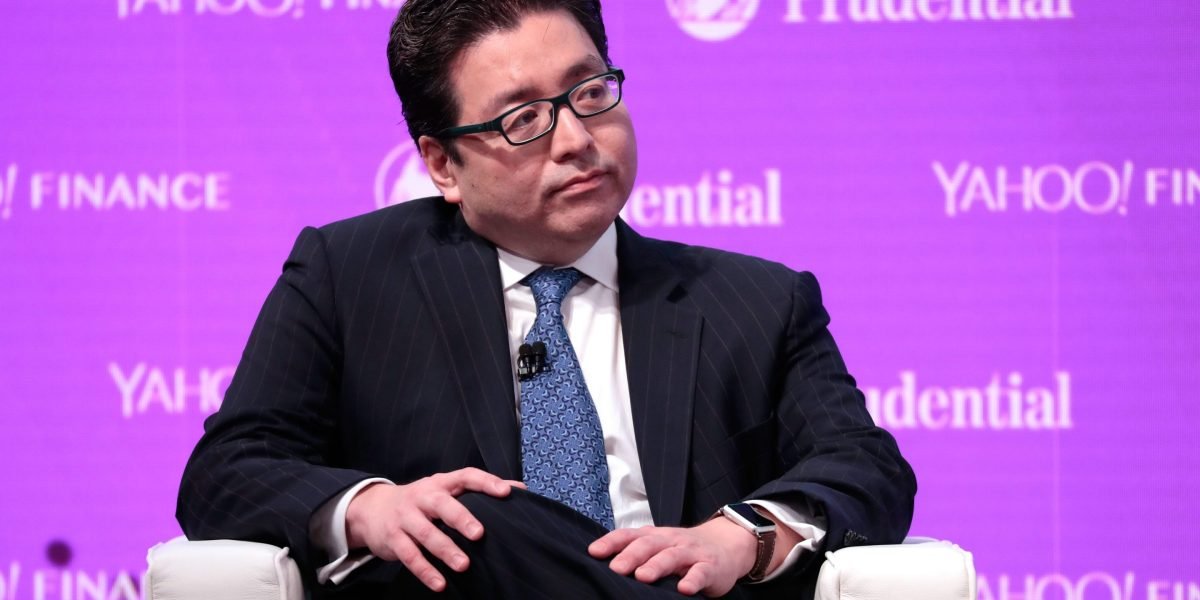Not many on Wall Street were able to call the huge S&P 500 comeback this year after the index plummeted into its first bear market in a generation last year. But then there was Tom Lee. Back in December, the veteran analyst and cofounder of Fundstrat Global Advisors argued that the S&P 500 would jump more than 20% this year to 4,750—a price target 17% higher than Wall Street’s median forecast. And in March, Lee doubled down on his bullish take, arguing stocks were set to soar due to falling inflation, a dovish Fed, and reasonable valuations after 2022’s dismal year. Since then, the S&P 500 has rallied nearly 10%, for an over 14% upswing year to date. It’s looking pretty good for Lee’s prognostication, and now he’s back with another big call.
Lee, who is generally known for his bullish forecasts and support of cryptocurrencies, says that stocks will continue their march higher. Despite more than a year of consistent recession predictions from Wall Street (probably amounting to the most widely predicted recession in history), he notes that the economy has remained resilient, with the unemployment rate hovering near pre-pandemic lows and GDP growth continuing in the first quarter.
“I think instead of a recession unfolding, the economy is actually slipping into an expansion,” Wall Street’s biggest bull told CNBC Monday.
Here’s what Lee is seeing that everybody else might be missing.
“Conditions for profits to actually outperform”
Investment banks have repeatedly warned that the Federal Reserve’s rapid interest rate hikes will eventually slow the economy enough to spark a recession, with some top strategists predicting that corporate earnings will fall throughout the remainder of the year and crush stock prices. But Lee pointed to falling commodity prices, healing supply chains, and the strong labor market as evidence that the economy—and corporate America—may be in better health than many imagine.
“I think these are conditions for profits to actually outperform, and at a time when investors’ positioning has been so offsides,” he said, noting that investors have been “very cautious” to invest this year amid consistent recession predictions.
Lee has seen some of Wall Street’s recession fears turn to FOMO (fears of missing out) in recent weeks, which could increase flows into the stock market. And while many analysts have cautioned that this year’s stock market rally has mainly been led by a few tech giants, the Fundstrat cofounder doesn’t see that as a negative.
“I don’t think stocks are overextended. I think the FANGs did the heavy lifting [in this year’s rally],” he said, referring to the famous Facebook-Apple-Netflix-Google tech basket, “and if we are slipping into an expansion, a lot of other names are going to participate.”
Lee isn’t totally alone in his bullish view. Jay Hatfield, Infrastructure Capital Management’s CEO, told Fortune that he believes inflation will fall to just 3.1% in June, enabling the Fed to end the rate hiking campaign that has weighed on stocks later this year.
“We believe that the Fed will be forced to capitulate on their ‘entrenched’ theory of inflation, just as they capitulated on their ‘transitory’ theory, as the year-over-year data confirm that inflation is plunging,” he said.
Hatfield now sees the S&P ending the year in a range between 4500 and 5000, as inflation fades and “an A.I. boom continues to fuel the stock market and increases economic activity.”
For Tom Lee, the only thing that could quash the market’s rally this year is an aggressive Fed, which, as some economists told Fortune earlier today, isn’t satisfied that it has fully licked inflation yet. But Lee doesn’t see that happening.
“I think this level of inflation is going to start to look more acceptable to the market and to the Fed,” he said. “And then the question is, ‘Is the Fed okay with where stocks are’? And I think they are.”





